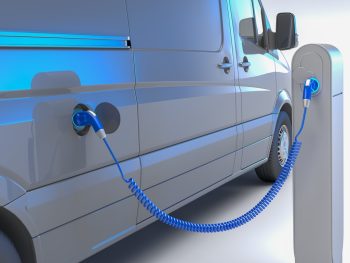Dealers have lent their backing to calls for a short-term rethink on the ZEV mandate for commercial vehicles and proposals to cut regulatory burdens for fleets running electric vans.

The National Franchised Dealers Association (NFDA) said its van dealer members support calls from manufacturers for a short moratorium of the mandate and have also welcomed the inclusion of a section for vans in last month’s consultation.
Open until 11.59pm on 18 February 2025, the ZEV mandate consultation is split into two parts. The first part focuses on the switch back to a 2030 phase-out date for sales of new petrol and diesel cars and the potential requirements for new non-zero emission vans to be sold from 2030 to 2035. The second part looks at the ZEV mandate and seeks views on the existing flexibilities within scheme and other technical updates to ensure its efficiency.
NFDA CV dealer members have also welcomed the Government’s consultation on changes to regulatory flexibility for zero-emission vans over 3.5 tonnes and up to 4.25 tonnes.
Also launched on 24 December – and open until 11.59pm on 3 March 2025 – this consultation seeks views on proposals to reduce regulatory burdens for businesses operating zero-emission vans.
Sue Robinson, chief executive of the NFDA, said van dealers have invested heavily in the move to eLCVs and are committed to the transition but added that this needs to be gradual and orderly.
Latest van registration figures from the Society of Motor Manufacturers and Traders (SMMT) show electric vans accounted for just 5.8% of the market share in the first 11 months of 2024; a decline of 0.1% compared to the same period in 2023, and well below the 10% target set by the mandate.
This is particularly concerning as fines for non-compliant vans are set to double from £9,000 to £18,000 in 2025, alongside the mandate percentage increasing to 16%.
Robinson said that diesel vans remain the preferred choice for most customers due to range, refuelling speed, payload capacity and lower purchase costs. She also warned that van fleets are particularly hard hit by lack of access to home charging.
“An often-overlooked aspect of van usage is that many vans are assigned to employees who take them home overnight to ensure they are ready for 24/7 call-out services. Many of these employees live in apartments or flats where home charging is not an option. Additionally, on-street charging is typically designed for cars and is often inadequate for the larger size of light commercial vehicles, which can be twice as long as a car.”
The NFDA and its CV dealer members say ZEV targets for vans should be reassessed for the short term until customer demand and van charging infrastructure meet the Government’s expectations.
“Such an approach would facilitate a balanced and sustainable shift to zero emissions,” Robinson explained.
The NFDA also said Labour must prioritise incentivising van customers during the transition to electric, recognising that their needs differ from those of car buyers.
“If the Government continues to enforce unrealistic ZEV targets and penalties for vans, manufacturers will reduce the supply of diesel light commercials, which will harm the UK economy. This could also lead to the unintended consequence of older, polluting vans being repeatedly repaired to stay on the roads, further damaging air quality.”

